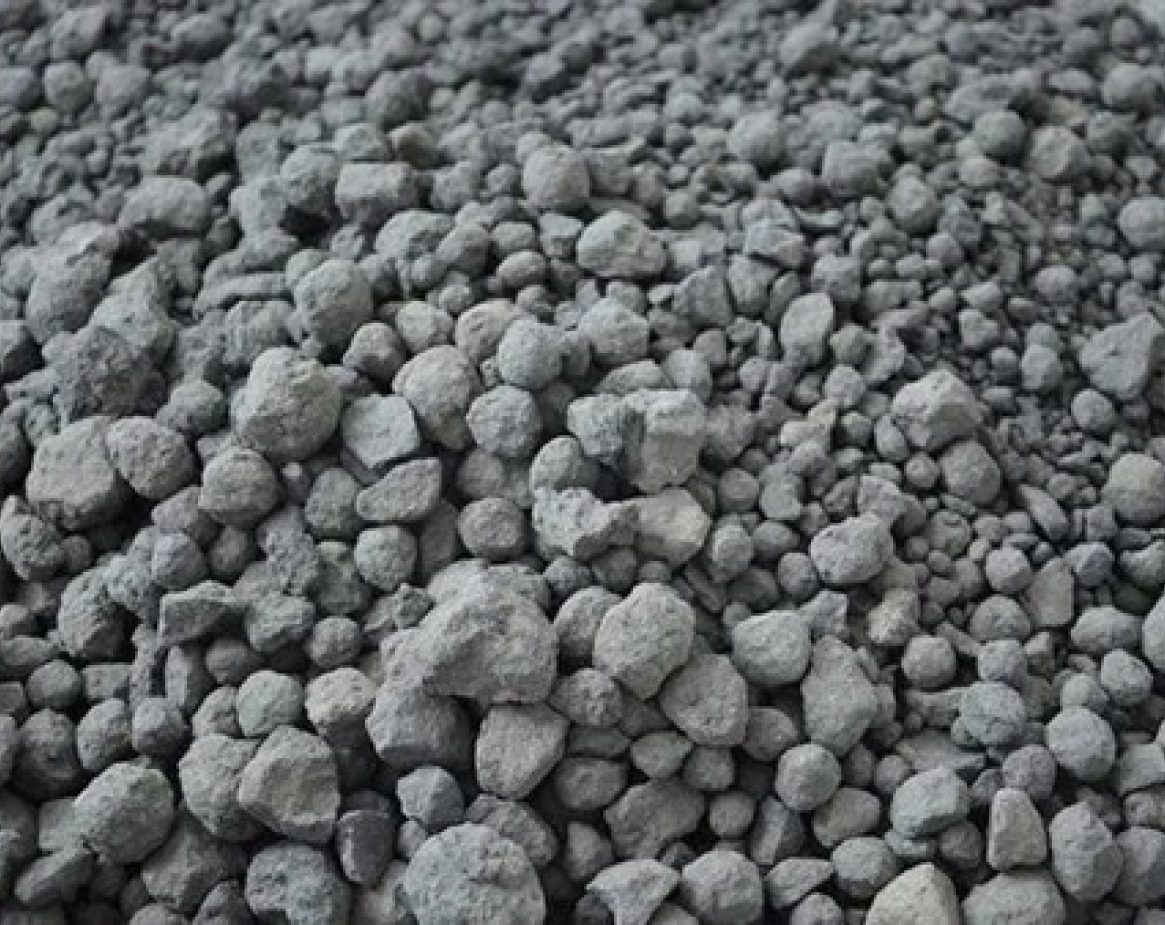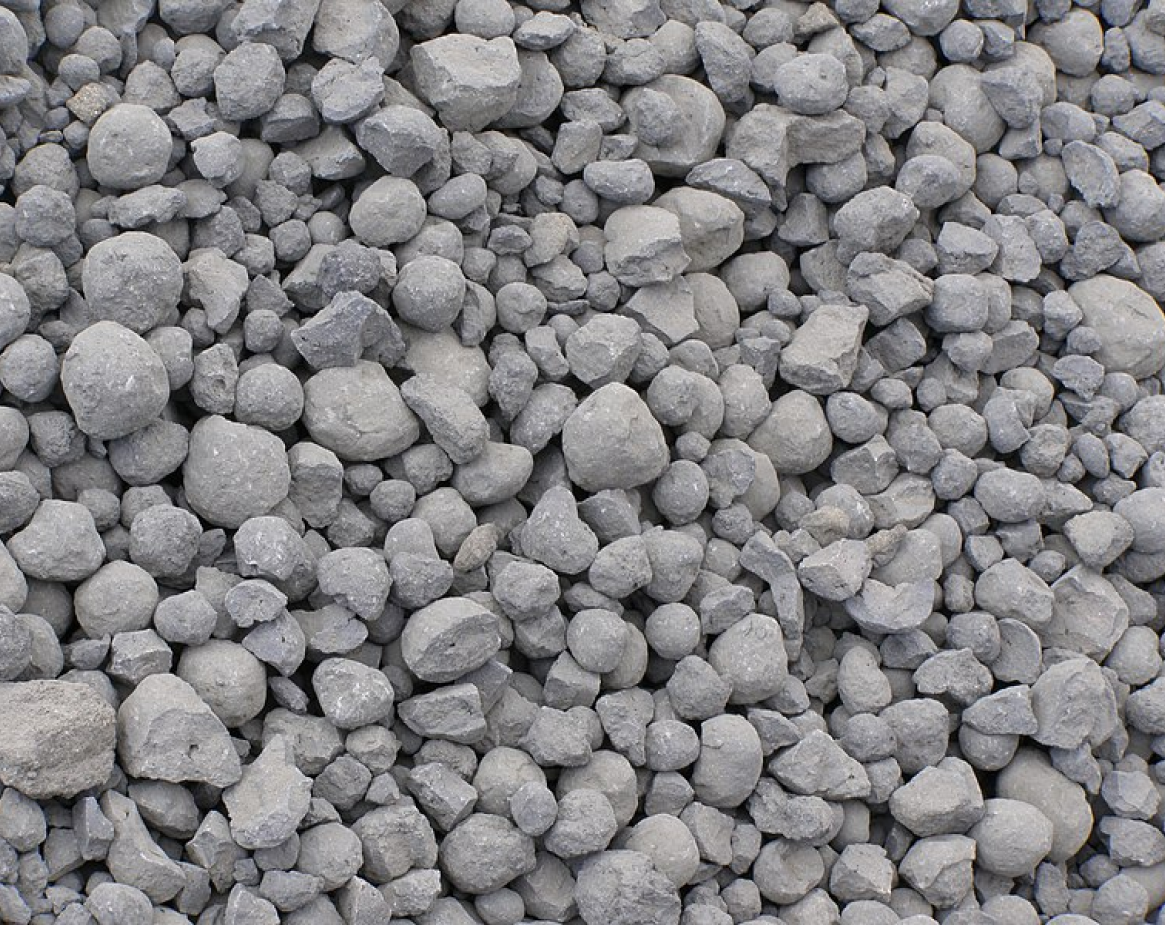Cement clinker is a solid material produced in the manufacture of Portland cement as an intermediary product. Clinker occurs as lumps or nodules, usually 3 millimetres (0.12 in) to 25 millimetres (0.98 in) in diameter. It is produced by sintering (fusing together without melting to the point of liquefaction) limestone and aluminosilicate materials such as clay during the cement kiln stage. Clinker, if stored in dry conditions, can be kept for several months without appreciable loss of quality. Because of this, and because it can be easily handled by ordinary mineral handling equipment, clinker is internationally traded in large quantities. Cement manufacturers purchasing clinker usually grind it as an addition to their own clinker at their cement plants. Manufacturers also ship clinker to grinding plants in areas where cement-making raw materials are not available.
Cement Clinker
Portland cement clinker (abbreviated k in the European norms) is ground to a fine powder and used as the binder in many cement products. A small amount of gypsum (less than 5 wt.%) must be added to avoid the flash setting of the tricalciate aluminium (Ca3Al2O6), the most reactive mineral phase (exothermic hydration reaction) in Portland clinker. It may also be combined with other active ingredients or cement additions to produce other types of cement including, following the European EN 197-1 standard
Features
- CEM I : Pure Portland clinker (Ordinary Portland Cement, OPC)
- CEM II : Composite cements with a limited addition of limestone filler or blast furnace slag (BFS)
- CEM III : BFS-OPC blast furnace cements
- CEM IV : Pozzolanic cements
- CEM V : Composite cements (with large additions of BFS, fly ashes or silica fume)



